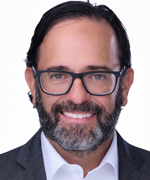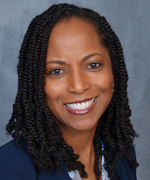
Advisory body represents patients, practicing physicians, and the public
Five years after its creation, the American Board of Medical Specialties (ABMS) Stakeholder Council is tackling tough issues that face not only ABMS and its Member Boards but the health care community at large, making input from its public members even more essential.

The Stakeholder Council was established in 2018 to ensure that the decisions of the ABMS Board of Directors (BOD) are grounded in an understanding of the perspectives, concerns, and interests of the multiple constituents impacted by ABMS’ work. Much of the Stakeholder Council’s initial focus revolved around the recommendations in the Continuing Board Certification: Vision for the Future Commission report, noted Carrie Radabaugh, MPP, Senior Vice President of Governance and Board Relations at ABMS.
Nowadays, Stakeholder Council members are pondering how to protect scientific expertise and patient primacy, promote professionalism, and address a host of other issues from artificial intelligence, public mistrust, and vaccine hesitancy to health equity and mental health awareness, among others. “The entire House of Medicine is grappling with these issues that have a profound impact on patient care,” Radabaugh said. “It’s particularly helpful to gain insights from our public members to ensure that any initiatives we create or policies we make acknowledge patients’ perspectives and needs.”
The Stakeholder Council is charged with providing advice and recommendations to the BOD on strategic initiatives, policies, and certification and pilot programs. It is composed of up to 10 practicing physicians (not serving in leadership positions with their specialty board or society), six public members, five representatives from ABMS Associate Members, two at-large ABMS Member Board Executives or Directors/Trustees, and one member from the greater credentialing community. The BOD officers, including ABMS President and Chief Executive Officer Richard E. Hawkins, MD, serve as ex-officio voting members of the Stakeholder Council, as well. Members serve a three-year term and may be re-elected to serve one additional three-year term. The Stakeholder Council meets once in person annually and has several virtual meetings during the year.

When Donald J. Palmisano Jr., JD, CAE, Chief Executive Officer of the American Society for Gastrointestinal Endoscopy, joined the inaugural Stakeholder Council as a public member he had just finished serving on the Vision Commission. During that time, Palmisano started to fully understand the value of the credential in terms of ABMS and its Member Boards’ efforts to protect patients. On the other hand, it’s also important to ensure that any changes made to the certification process aren’t unnecessarily stressful to practicing physicians who are dealing with payor issues and a changing practice environment, among other challenges, he said, adding, “Striking that balance is essential.”
Since its inception, Palmisano has seen the Stakeholder Council’s sphere of influence grow. “It has become a working component of ABMS,” he said. Palmisano is impressed with ABMS and the Member Boards’ efforts to reach out to all constituents, not just doctors, but patients and anyone who uses the credential. More important is their willingness to listen. “So much of health care decision-making focuses on the clinical aspects of it, but those who receive care should also have a voice in it,” he said. “Patients, after all, are impacted the most by the care they receive.” The Stakeholder Council is being asked to weigh in early in the decision-making process, which will result in better, more concise policies and processes that will have a better impact for all parties, Palmisano said.

For Amy Ohmer, a public member since 2018, the Stakeholder Council represents a partnership between ABMS and the Member Boards and patients/parents. “This is an audience that is willing to listen to what obstacles patients and parents may face and how to improve the care being provided,” said Ohmer, adding, “Removing those barriers opens up a world of quality and safety.” Ohmer is eager to share her perspective as a parent whose two daughters were diagnosed with type 1 diabetes (T1D) at ages 3 and 8, as a patient, and as a female; she even started a blog about her experience called Naturally Sweet Sisters. Prior to joining the Stakeholder Council, Ohmer participated in the Patient and Family initiatives funded by the American Board of Pediatrics (ABP) Foundation and was an inaugural member of the workgroup for the board’s Roadmap Project committed to improving the resilience, emotional, and mental health of children with chronic medical conditions and their families.
Ohmer also shares what she has learned about the value of board certification across her patient advocacy network. That network includes the T1D Exchange’s Family Advisory Network, which she co-chairs, and Diabetes Partners in Action Coalition, of which she serves as a member. In 2016, the T1D Exchange created its Quality Improvement Collaborative to refine best practices and improve daily life for people with T1D, which Ohmer supported as a founding patient/parent advisor. In addition, she is an Advisory Board Member for C.S. Mott Children’s Hospital Patient and Family Centered Care and the Caswell Diabetes Center at Michigan Medicine. Ohmer is also a Family Mentor for the Juvenile Diabetes Research Foundation and American Diabetes Association, as well as the former Director of Research at the International Children’s Advisory Network. Ohmer sees herself as an “ambassador” helping to educate patients about why it’s important to see a board certified physician and how they can access information about their doctor’s certification. “We’re all in this together to ensure that patients receive the best care possible,” Ohmer said. “When patients see a physician who is board certified, they can feel confident that they are going to be safe, respected, and receive excellent care.”

That’s what Rogelle Hackworth, a new public member on the Stakeholder Council, wanted when her youngest daughter was diagnosed with Sickle Cell Disease (SCD). When she and her husband first met with the doctor, they expressed their desire to work together and their voice as parents “to be heard” to ensure the best outcome. “I asked a lot of questions, and the doctors were forthcoming and engaging,” Hackworth recalled.
Her experience motivated her to become the voice of others. “Not everyone knows how to advocate for their child or themselves,” said Hackworth, who is the Director of Technical Supply Network Design at Procter & Gamble. “I wanted to bring a different dialogue to the conversations.” And that she has.
Hackworth serves as a parent leader advocate for the Cincinnati Children’s Hospital Medical Center’s Research Advisory Board and Family Advisory and Research Councils. She also served as a patient advocate on the Pediatric Experience Collaborative, a group of children’s hospitals that shares best practices to optimize patient, family, and care provider experiences. In addition, Hackworth is a member of the ABP’s Roadmap Project and Patient Advisory Committee, working for several years on the board’s Diversity, Equity, and Inclusion initiatives. She was involved in helping to establish a Learning Health Network for SCD, first serving with the ABP’s Patient and Family Group and then on the American Society of Hematology Sickle Cell Design Workgroup and Learning Community.
Hackworth’s goal is to bring her experience in helping to develop strategies and improve outcomes for patients with SCD and other medical conditions to the Stakeholder Council. “I was excited to learn that there is an umbrella organization, ABMS, with some level of governance for all doctors across all specialties that helps ensure consistency in approaches and creates a learning atmosphere even after post-graduate training,” she said. It’s also reassuring to know that the same organization is focusing on culture, among other imperatives, to collaborate and create trust with patients and families as part of its Strategic Plan for 2023-2028.
-
Read More:
- ABMS Insights |
- Leadership |
